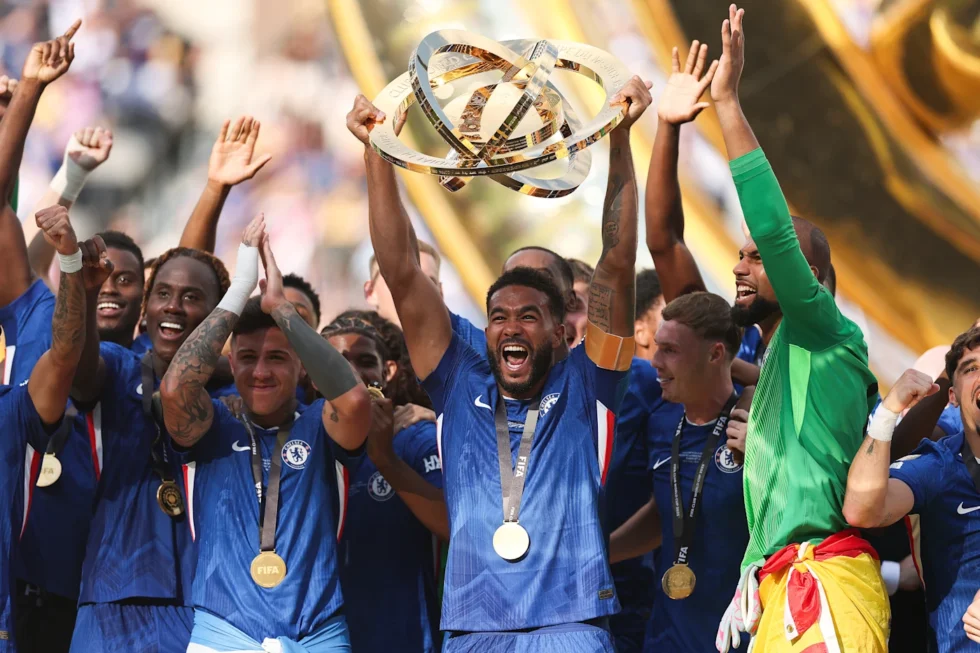Can FIFA’s Club World Cup reform reshape global football – or spark a deep rift with UEFA

FIFA’s ambitious plans to reform the Club World Cup have entered a critical phase. What was once a marginal, low-profile tournament is set to become a cornerstone of FIFA’s global strategy. Key European clubs such as Real Madrid, FC Barcelona, Manchester United, Liverpool, and SSC Napoli are backing the changes. These top-tier teams believe that a biennial Club World Cup would unlock new commercial opportunities and reinforce their global influence.
According to reports by G.Business, citing The Guardian, the reform reflects a broader trend: clubs are seeking new global revenue streams beyond traditional league structures. However, the proposal has met fierce resistance — particularly from UEFA and national leagues — triggering one of the most contentious debates in modern football.
Planned Expansion: From 32 to 48 Teams
Currently, the Club World Cup features 32 teams in a single, compact tournament. FIFA now aims to expand that number to 48 teams, mimicking the format of the expanded FIFA Men’s World Cup. The move is seen as a way to:
- Increase global participation
- Tap into new markets in Africa, Asia, and the Americas
- Boost broadcast rights, sponsorship, and tourism
Supporters argue that the increased diversity of clubs would drive up global viewership and strengthen football as a truly international sport.
Example: A matchup between clubs like Al Hilal (Saudi Arabia) and Manchester City, or Orlando Pirates (South Africa) vs. Bayern Munich, would have the potential to attract massive audiences in emerging football markets.
UEFA and Domestic Leagues Push Back
The Union of European Football Associations (UEFA), alongside the European Leagues Association, has expressed strong opposition to FIFA's plans. Their main concerns center on:
- An overcrowded international calendar
- Increased injury risk for elite players
- Dilution of existing competitions like the UEFA Champions League
- Lack of coordination between global and regional football authorities
Critics claim FIFA is overstepping by attempting to centralize power and revenue streams, undermining Europe’s historically dominant position in club football.
Aleksander Čeferin, UEFA President, recently stated:
“Another major tournament every two years? That’s unsustainable — physically for the players, financially for the clubs, and institutionally for the game itself.”
Who Will Host the 2029 Club World Cup
Despite ongoing resistance, FIFA is moving forward with planning. The next Club World Cup is scheduled for 2029, and three countries have emerged as leading contenders:
| Country | Strengths | Why It Matters |
|---|---|---|
| Qatar | Post-WC 2022 infrastructure | Reaffirming its place in global sport |
| Spain | Football legacy, strong venues | European support base and logistics |
| Morocco | Regional diplomacy, investment | Gateway to African development in football |
Each nation views the tournament as a strategic opportunity to enhance its international prestige and stimulate economic and tourism growth.
The Bigger Picture: Commercialization vs. Integrity
The reform efforts shine a spotlight on a deeper question: What should football’s future look like?
While elite clubs see the Club World Cup as a chance to expand their brand power and income, others warn of a slippery slope toward over-commercialization.
The increasing demands on players, the growing dominance of a few global clubs, and the erosion of traditional national competitions raise concerns about the sport’s long-term health.
FIFPro, the global player union, reported in 2025 that over 72% of professional footballers feel “overburdened” by the current match calendar.
Many fear that football’s global growth could come at the cost of its local roots, fairness, and sporting integrity.
Switzerland’s Role Behind the Scenes
While Switzerland is not a direct stakeholder in the tournament, its role is strategic and foundational:
- FIFA headquarters are located in Zurich
- The Court of Arbitration for Sport (CAS) in Lausanne may serve as the final decision-maker if legal disputes between UEFA and FIFA arise
- Many FIFA negotiations and sponsor deals are managed from Swiss cities such as Geneva and Zug
The country remains a neutral, influential player in international football governance.
Conclusion: Can FIFA and UEFA Find a Compromise
The future of the Club World Cup is more than just about expanding a tournament — it's about reshaping football’s global architecture. Whether a balance can be struck between financial ambition and sporting sustainability remains to be seen.
With the 2029 edition looming and political tensions rising, the next few years will be decisive in determining whether FIFA’s vision of a global club tournament will unite or divide the world of football.
Stay connected for news that works — timely, factual, and free from opinion. Learn more about this topic and related developments here: Liverpool pays tribute to Diogo Jota: empty locker and retired No. 20